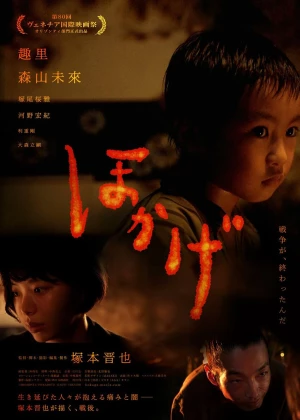Shadow of Fire
Movie details

As I grow older, so do my favorite directors. Some have reduced their output considerably, others have toned down their signature style. It's a bit of both for Shinya Tsukamoto, but he reinvented himself without losing what made him so special. Shadow of Fire [Hokage] is his latest film and should make a nice double bill with Fires on the Plain. It's not as manic or visceral as some of his earlier films, but it's still quite raw and unflinching and it had me glued to my chair from start to finish. Tsukamoto fans have plenty to look forward to, even when it's not his best film.
![screencap of Shadow of Fire [Hokage]](/thumbs/img/articles/1200xauto/shadow-fire-1.webp)
If I need to point out the one film that caused a major shift in Tsukamoto's oeuvre, it's probably Kotoko. It's the first one that felt more humane, with a strong focus on drama and sporting a more fragile emotional core, despite Tsukamoto's frantic style still being heavily featured. His subsequent films continued that trend, with Shadow of Fire completely devoid of hyperediting. This isn't just any regular war drama though, Tsukamoto's approach is still razor-sharp, zooming in on the precarious lives of a handful of characters in a pointed, visceral way.
Fires on the Plain focuses more on the effect war has on its direct participants, while Shadow of Fire embraces those left to deal with the consequences of war. In that sense, it's a film that goes rather well with Grave of the Fireflies, even though Tsukamoto's film is quite a bit edgier. All the characters featured here are heavily damaged, looking to survive before they can even think of healing physically and mentally. Because of that, it's not the most accessible film, as none of the characters are inherently sympathetic, but ultimately Tsukamoto made me feel for every single one of them.
A young boy wanders through town alone. He has no family and survives by stealing food from the local markets. One of the vendors chases him down, and he hides from him in a small restaurant. When the hostess finds the boy she decides to take care of him, as she has lost her son and husband to the war. The boy has to promise to stop stealing, but finding honest work is difficult. He does his best but gets scolded when he takes on dangerous jobs. One of the men finds out that the boy has a gun, and he offers him a job if he is willing to bring the gun along.
![screencap of Shadow of Fire [Hokage]](/thumbs/img/articles/1200xauto/shadow-fire-2.webp)
Intense visuals and hyperediting have always been trademark elements in Tsukamoto's films. That intensity is still here, it's just being expressed differently. The framing has a lot of intent, the editing is still notable even though the tempo slowed down and the use of color and light is still exemplary, adding plenty to the atmosphere. The cinematography isn't quite the attraction in and of itself anymore, but it still helps to differentiate the film from its peers. I prefer the overt maximalist styling of his earlier work, but Shadow of Fire looks great regardless
The music has undergone a similar trajectory as the visuals, though Tsukamoto's scores never fully matched their intensity. He uses the score wisely to accentuate certain moments, with some of the softer ambient tracks jumping out positively. It's probably the only element of the film that provides a counterbalance to the harshness and ruthlessness on display elsewhere, and I kind of welcomed this form of relief. Shadow of Fire doesn't hold any punches, so it's nice to have something that keeps it from becoming full-on misery porn.
The performances are stellar. There are some familiar faces here (it was nice seeing Omori again and Moriyama has a memorable part), but the principal roles are reserved for (relative) newcomers. And Tsukamoto coached them extremely well. It's rare to see a child actor make such an impression, especially considering the limited amount of dialogue, but the boy excelled here. Shuri is also excellent, doing a lot with very little. They were both helped by Tsukamoto's smart directing choices, but that doesn't take away from their accomplishments.
![screencap of Shadow of Fire [Hokage]](/thumbs/img/articles/1200xauto/shadow-fire-3.webp)
Probably the most divisive part of Shadow of Fire is the narrative structure. At first, it looks like Shuri has the lead role, but then the story shifts to the boy and she disappears from view for almost half of the film. There's also no real ending to the story either, making this more of a meandering slice-of-life type film. These films tend to fall into the light drama category, but that's not the case here. Tsukamoto makes sure this doesn't muddle the message, on the upside the film lacks the overbearing sentiment that often wears war dramas down.
Shadow of Fire has the marks of an aging director, but Tsukamoto is aging in style. What the film lacks in vigor and energy, it makes up for with piercing emotion and a stylish finish. The cinematography is on point, the score is beautiful and the performances are powerful. I would lie if I said I didn't miss the Tsukamoto of yonder, but I don't mind his evolution into a more mature and weathered director. If he continues to make films on this level, I'll be there to support him for some time to come. The film is warmly recommended if you can get to it.